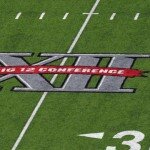When Mack Brown arrived at the University of Texas in 1998, he was handed a struggling program and given responsibility to not only improve the football side, but to also be the public face of a program in need of some serious public relations patches.
Brown has succeeded since in being this public face, making countless appearances at functions across the state to talk to the alumni base, educate coaches about the rigors of the college coaching lifestyle, shake hands at expensive per-plate fund-raisers and comb Texas to identify the best talent possible to keep the winning tradition alive on the Forty Acres.
In all fairness, this same expectation is a part of just about every Division I football coach’s job responsibilities anymore given the big-money nature of the sport. These guys are part-time fundraisers, part-time recruiters, part-time politicians, part-time de-facto parental figures, part-time counselors, and full-time football coaches.
In most programs this expectation comes with no out clause. It’s the expectation because resources don’t allow otherwise, and the climate demands it. With a little tweaking and some thought put into resource allocation, structure and manpower, this doesn’t have to be the case for the football coach at the University of Texas.
Mack Brown has been largely successful at Texas wearing these multiple hats and burning the candle at both ends (pardon those horrible puns), but this doesn’t necessarily mean doing so engenders any time of long-term sustainability.
With the increasing demands for success and an immeasurably high standard being a part of the reality for a coach at Texas, as the program moves forward a separation between coaching football and the business of developing the program should be considered two complimentary, but separate constructs.
If that coach is Art Briles, Gary Patterson or whomever, they should have the license and time available to focus on the X’s and O’s. On the day-to-day game-planning, and scheming to make sure the team is prepared as possible to win from one Saturday to the next.
There will be plenty of staff members available to kiss babies, talk to recruits, glad-hand and do all the little, ancillary things that should allow the coach to coach.
While it might be a change of philosophy overall, it’s a needed one.
It’s no longer 1998.
—
Kris Hughes is a Senior Writer for Rant Sports and contributor to Lindy’s In the Huddle- Texas Edition, now in stores.





















